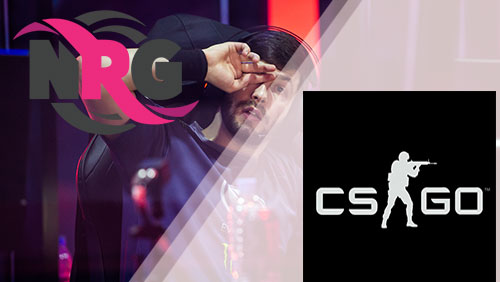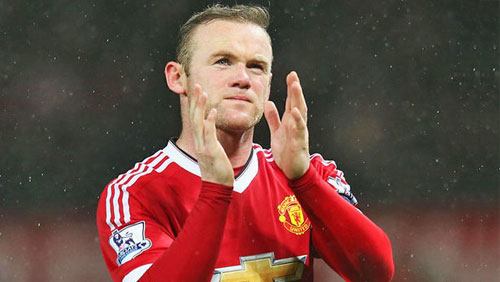A very public spat over the transfer of a Counter-Strike: Global Offensive player shows the need for protection for both players and the teams that invest in their growth in the esports industry.
As a father, I understand the need to take care of my child. I need to remain vigilant of a truck crashing into him while he is taking selfies in front of the Houses of Parliament. I have to be on hand to offer my feedback on his decision to have plastic surgery after his girlfriend leaves him for someone more handsome. But what if your child was an esports athlete? How do you protect them?
 This question has arisen after a very public spat erupted via email, concerning the decision by the professional esports athlete Tsvetelin ‘CeRq’ Mangalski to leave the Counter Strike: Global Offensive (CSGO) side Outlaws to play for NRG esports.
This question has arisen after a very public spat erupted via email, concerning the decision by the professional esports athlete Tsvetelin ‘CeRq’ Mangalski to leave the Counter Strike: Global Offensive (CSGO) side Outlaws to play for NRG esports.
The first email that found its way to my computer was from Mario Ovcharov, Chief Marketing Officer, UltraPlay. I wasn’t the only person to receive it. In a sense, it showed the maturity of the esports organisation as a whole when Ovcharov sent an open letter to 126 different people who work with the esports industry or the media, seeking opinion on the CeRq transfer.
Here are Ovcharov’s primary bullet points (Outlaws is a subsidiary of UltraPlay)
– CeRq signed a contract with Outlaws and broke that contract when he left to play for NRG esports.
– NRG esports ignored Outlaws after they attempted to broker a transfer agreement.
– Outlaws invested heavily in CeRq and wanted financial recompense.
– Theft of players should not be allowed.
– They want to see a transfer market like in professional football.
– They ended by posing the following questions to Electronic Sports League (ESL), esports Integrity Coalition (ESIC), and NRG esports.
Question to ESL: Will you allow a player, who is on an active contract with team A (Outlaws) to play in the ESL Pro League NA for team B (NRG eSports)? Will you take certain measures to prevent this occurrence and set it as industry standard?
Question to WESA and ESIC: What kind of actions can be taken, and what is the general stance of your organizations when it comes to such wildly poor ethics and theft of players?
Question to NRG eSports: Coming from the traditional sports space with owning Sacramento Kings and understanding the basic principles of sports integrity and transfers procedures, what do you think is the most rightful way to proceed in this situation?
Working in the more mature poker industry, I am used to organisations and players ignoring these types of questions. The esports industry is more willing to trade opinions in public. The first to respond was Ian Smith, Integrity Commissioner, ESIC.
The Viewpoint of ESIC
Smith made it clear that ESIC has no jurisdiction over the spat, but did provide an opinion, where he believed it would help the esports industry. A lack of a governing body exists in poker and is equally as problematic.
While not providing comment on the existence or legality of a contract between the three parties, Smith does believe in the sanctity of contract, and he urged publishers, and leagues, to create fair and consistent contracts.
It was a refreshing viewpoint.
In professional football, there is no sanctity of contract, with many high profile sports journalists chiding Arsenal manager Arsene Wenger, for refusing to allow Alexis Sanchez to sign for another club with one year left on his contract. It seems, very often, once the player’s mind is made up, it’s best to let them go, contract or no contract.
If this happens in esports, Smith expects there to be compensation from the losing party, which in this case would be Outlaws. Smith also believes penalties should exist for inducement to break a contract, which is what Outlaws are suggesting has happened in this case.
Smith does not believe the esports industry would be better off with a transfer system like football.
The Viewpoint of the Dad and the Lawyer
So where is CeRq in all of this?
A kid, who loves playing video games, and more than likely wants to be the greatest video game player in the world.
There needs to be a protective cloak thrown over the youngsters who get into the esports profession, but this isn’t unique in sport. On the day that football star Wayne Rooney announced his retirement from English football, we must remember that he was nine when he signed for Everton and made his professional debut at 16.
 In Rooney’s and CeRq’s case, the decisions would be taken by parents, under advice from legal eagles. In this instance, a lawyer representing CeRq, and his father, put out an official response to the UltraPlay CMO and copied in the other 126 people on the email chain.
In Rooney’s and CeRq’s case, the decisions would be taken by parents, under advice from legal eagles. In this instance, a lawyer representing CeRq, and his father, put out an official response to the UltraPlay CMO and copied in the other 126 people on the email chain.
The main bullet points were:
– The Dad and the lawyer believe CeRq can do what the hell he likes.
– The contract Outlaws think they have, is only good for wiping your ass.
– UltraPlay is using CeRq as a pawn in a bid to extract money from NRG esports.
I don’t know if the contract is legally binding, but I do know if there isn’t a contractual system in place, anarchy reigns in the esports industry. Contractual rights are common place in any business. When I left the rail industry, after 19-years, where they spent thousands of pounds on my growth, I had to abide by a two-year non-compete clause. It sucks, but I was happy to sign it when I was 16.
Here is the view of Andy Miller, CEO of NRG esports
The View of Andy Miller, Founder and CEO of NRG esports
– CeRq is a minor.
– The player is not under contract with NRG and is acting as a stand in for their CSGO team.
The UltraPlay CMO was quickest to respond:
The second View from Mario Ovcharov, Chief Marketing Officer, UltraPlay.”
– CeRq signed a valid contract until Sep 29, 2017
– There is a two-month termination notice, and nobody evoked it.
– There is a two-year non-compete clause, including acting as a stand-in, and CeRq broke it.
– He has played twice for NRG Aug 20 & 23, without permission
– CeRq was not a minor under Bulgarian law, where he was over 16 when signing the agreement.
– The agreement is valid until the law states otherwise.
What a mess.
And with all of this back and fore bitchery between grown-ups, we forget there is a teenager who just wants to play his video game at the highest level he can attain, and probably, couldn’t give two hoots about the money.
What this very public spat shows, is the need to protect esports athletes, who are at an age where they don’t fully comprehend legal expectations, but also a requirement to protect the companies that are investing in the growth of their players. There also needs to be a governing body that can act as an arbitration in such matters, to prevent the long drawn out process of civil law.
Although the voyeurs have loved this one, methinks it’s probably wise for the esports publishers, team owners, and league operators, to not air their dirty underpants in public, a point Ovcharov rather comically points out when he stated:
Last but not least, we believe that the rightful way to lead communication regarding any offers and potential transfers should be kept between organizations’ management, not directly with players. Our open letter and clarification of the facts intends to address the eSports community about the unregulated practices and provoke a change in the sector for better.
You started it.
No, you started it.
No, you…